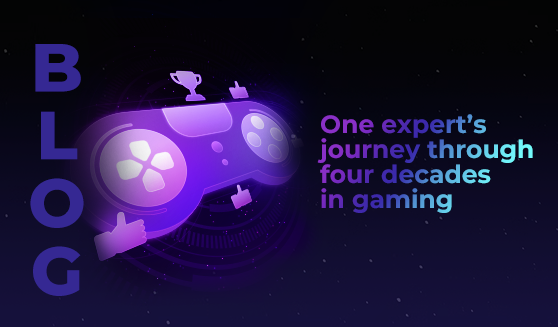
Why sustainability is the heart of the smart city revolution
The smart cities of the future will use tech to lower emissions, cut urban temperatures, and improve quality of life in highly populated areas.


Michael Katz (Video Games Industry Expert) has spent over 25 years in the video games industry. He was President of Sega of America for the introduction of the Genesis 16 bit game system; President of Altari’s video games division during a critical period in the company’s expansion; and President of Epyx computer software from 1983-1985, during which time it grew to be one of the leading mass market publishers of computer entertainment.
His extensive experience led him to launch a consulting firm in 1994, helping businesses in the interactive software, multi-media and toy industries with executive search and strategic business planning.
We caught up with Katz after LEAP 2024 to get a glimpse into the lessons he’s learnt over his years in the industry.
From the 1980s to the present day, Katz has observed incredible shifts in the sector. When he started out, the cost of development for a new game was (at most) in the tens of thousands of dollars. Now it’s in the millions – with the current record for the most expensive game ever developed standing at a staggering USD $174 million.
Similarly, Katz noted that in the 1980s, the size of a development staff was between one and four people. “At Epyx,” he said, “we had one programmer on Pitstop,” who was the designer/programmer/artist/sound guy – “all in one.”
Now a development team might be made up of hundreds of gaming professionals.
The number of games that were introduced to the market each year were much lower, too; perhaps a few hundred new games annually. Today, thousands of new games become available every year – with gaming platform Steam recording 12,068 new games in 2023 alone, for example.
All of this means that gaming companies require much larger investments today in order to function. The amount of funding in the industry used to be in the low millions, but now it’s hundreds of millions, or even billions.
And revenue streams have shifted too. At the beginning of Katz’s career, consumers would pay $40-50 to buy a game. In 2024, many mobile games are free or available on a low-cost subscription; and significant revenue is made, instead, from the sale of in-game virtual goods.
While Katz was with Atari in the 1980s, the company sponsored an American video games team – but that wasn’t the norm. Esports was a minor niche in the gaming industry, but today the category is booming – “team play/competition is standard,” he said.
Gaming is a competitive space for career development, with high demands placed on professionals in a diverse and complex working landscape. We asked Katz what advice he’d give to someone with dreams of building their career in gaming. He said that a candidate should:
OK, so LEAP isn’t just a gaming show. But Katz pointed out that LEAP is a great place to see new products and emerging companies, and “get a vibe of the industry.”
You’ll get to meet and hear from “industry movers and shakers,” he added, and display your own skills and capabilities to potential employers, collaborators, or mentors.
And importantly, you can use the experience of being immersed in the tech industry as it is at this moment in time to develop your own sense of what products or services could be different from (or better than) what’s currently available on the market.
We love gaming at LEAP, because it’s one of the most exciting spaces for exploring the potential of emerging technologies – without the limitations of daily life. So if you’re developing a game or building your career in this space, we’d love to meet you in Riyadh.
Thanks to Michael Katz. See you at LEAP 2025.

The smart cities of the future will use tech to lower emissions, cut urban temperatures, and improve quality of life in highly populated areas.

Discover the cities that rank highly for smart city preparedness, and learn why locally relevant innovation is more important than cutting-edge tech.

If you’ve ever thought about becoming a tech investor, read this – learn why investors are the quiet force shaping the future of the industry.

The smart cities of the future will use tech to lower emissions, cut urban temperatures, and improve quality of life in highly populated areas.

Discover the cities that rank highly for smart city preparedness, and learn why locally relevant innovation is more important than cutting-edge tech.

If you’ve ever thought about becoming a tech investor, read this – learn why investors are the quiet force shaping the future of the industry.